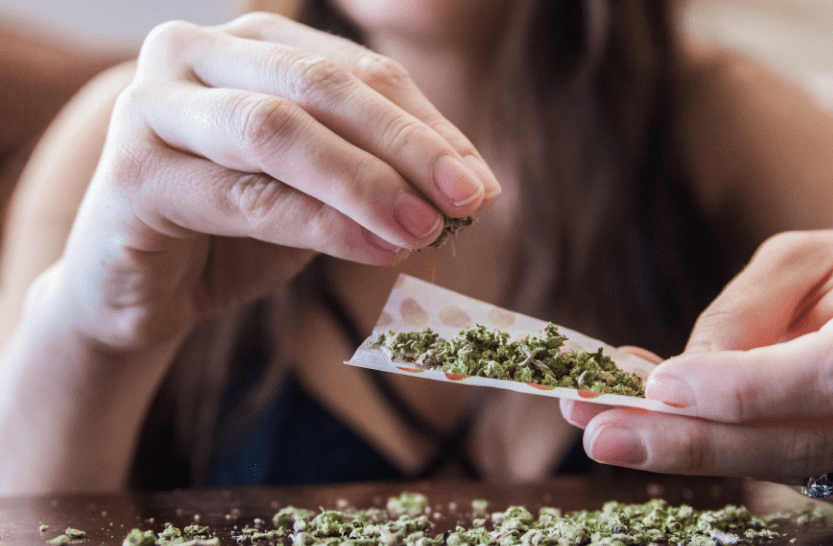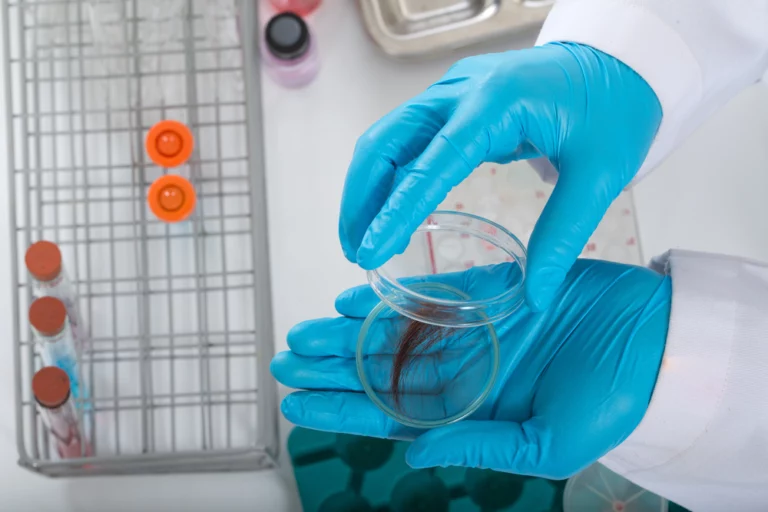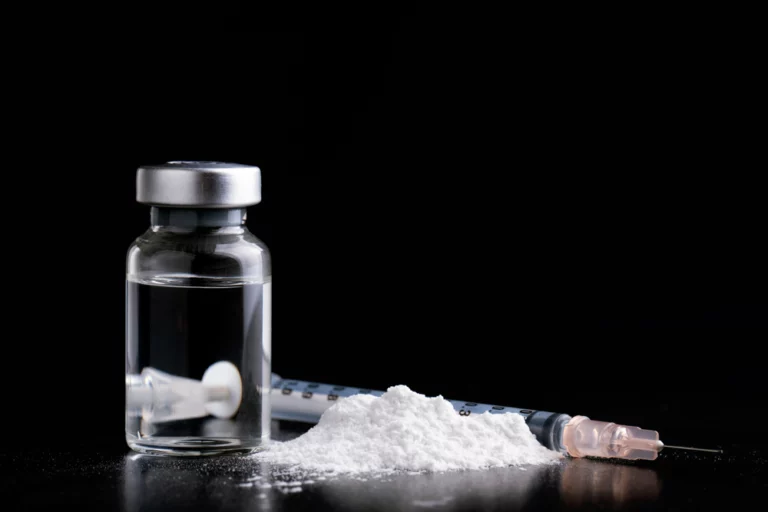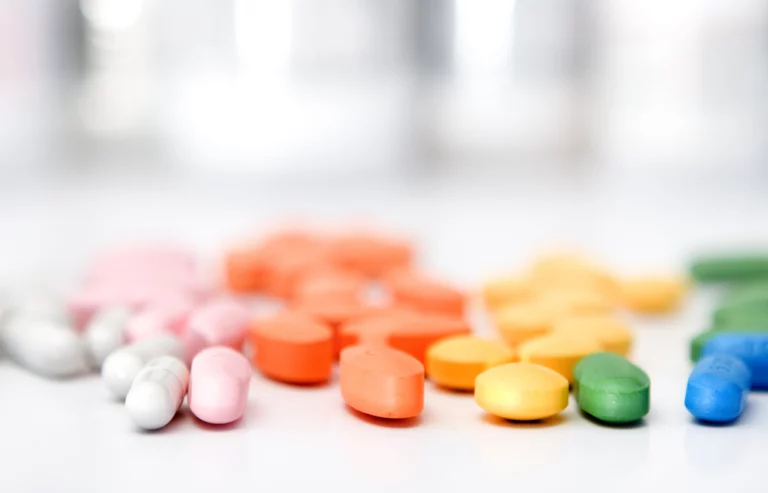According to the National Institute on Drug Abuse, as many as 1 in 6 people in the U.S. have a diagnosable substance use disorder at some point in their lives. But how does drug abuse lead to schizophrenia? And how do you recognize the signs if someone you know is abusing drugs? Read on to learn more about the connection between schizophrenia and drug abuse.
The Basics of Schizophrenia
Schizophrenia is a severe mental health disorder characterized by hallucinations (hearing things that aren’t there), delusions (false beliefs), and disorganized thinking and behavior. About one in every 100 adults in the U.S. has been diagnosed with schizophrenia. On average, the condition becomes evident in early adulthood, but it can develop at any age. Treatments for schizophrenia include medication and/or psychosocial therapies. Medication may help with the symptoms of the disorder but doesn’t address the root cause – which is largely unknown.

Schizophrenia and Drug Abuse: What’s the Link?
Schizophrenia and drug abuse are often linked because drugs can alter the brain’s chemistry, producing changes in the brain that may trigger symptoms of schizophrenia. It’s important to note, however, that many people with schizophrenia also abuse drugs. Thus, schizophrenia and drug abuse are not necessarily linked. There are several substances that have been associated with an increased risk of developing schizophrenia. Amphetamines (such as crystal meth), cannabis, cocaine, and opiates such as heroin have all been linked to an increased risk of schizophrenia and drug abuse.
Marijuana Is Often Linked to Schizophrenia and Drug Abuse
Marijuana is the most common illicit drug linked to schizophrenia. Many studies have found that people who have used marijuana (but not other drugs) are at increased risk of developing schizophrenia. There are a few possible explanations for this. One is that the chemicals in marijuana may alter brain chemistry in such a way as to trigger schizophrenia. Marijuana is also highly addictive and people who abuse it may develop a “psychological dependence” that may be problematic in the long term.

Ecstasy Is Also Linked to Schizophrenia
Ecstasy also has been linked to an increased risk of schizophrenia. It’s important to note, however, that people who develop schizophrenia do not choose their condition. Thus, the increased risk of schizophrenia in some people who use Ecstasy may not be linked to the drug itself. It could be linked to the fact that those who abuse Ecstasy are at increased risk of developing schizophrenia.
Cocaine Abuse
Cocaine is a central nervous system stimulant that changes how the brain communicates with the body, increasing both alertness and energy. People who use the drug for extended periods of time often report that it makes them feel happy and energetic, but it can also lead to serious health problems including heart problems and seizures. There’s some evidence that people who abuse cocaine are more likely to experience psychotic symptoms like hallucinations and delusions, as well as a possible increased risk of developing schizophrenia. – However, this risk is small, and there’s no clear consensus on the connection between cocaine and schizophrenia.
Amphetamines Abuse
Amphetamines are a type of stimulant that can reduce someone’s appetite, increase their energy and help them stay awake for longer periods of time. But these effects come with a risk: dangerous health consequences like overheating, seizures, and heart problems. There’s some evidence that people who abuse amphetamines are more likely to experience psychotic symptoms like hallucinations and delusions. However, the association is so small that it’s considered unreliable.

Hallucinogen Abuse
Hallucinogens are chemicals that alter people’s sense of reality. While they’re often associated with being used in the context of a party or other social setting, they can also be purchased and used as a drug on their own. There’s some evidence that people who use hallucinogens are more likely to experience psychotic symptoms like hallucinations and delusions. But there’s little consensus on the link between these drugs and schizophrenia.
Alcohol Abuse
Alcohol is a depressant that slows the brain, causing people to feel relaxed and less alert. It’s often used as a social lubricant, meaning it’s often consumed in large quantities or used as a coping mechanism for stress or anxiety. There’s some evidence that people who abuse alcohol are more likely to experience psychotic symptoms like hallucinations and delusions, but the link is so small that it’s considered unreliable.
Conclusion
Having a family member who abuses drugs can be a stressful experience, especially if it’s a loved one with schizophrenia. While the link between schizophrenia and drug abuse is unclear, it’s important to be aware of the signs of drug abuse as they can be a red flag for mental health problems. What’s more, if you notice any changes in your loved one’s behavior, such as acting abnormally or becoming withdrawn, call 911 immediately. These could be a sign of a serious mental health issue.

Knoxville Recovery Center Can Help
Fortunately, help is available for those battling addiction and/or mental health issues. Knoxville Recovery Center offers various services to those struggling in any stage of addiction or mental illness.
We offer a variety of services including:
Detox – Our on-site detox clinic accommodates and supports clients as the body sheds all residual traces of addictive substances. Clients are under medical supervision during the detox process to ensure that they remain safe and comfortable.
Addiction Treatment – During our addiction treatment program, clients will engage in introductory therapies and exercises that work to prepare them for continued, more intensive treatment outside of our facility. The goal of our addiction treatment track is to stabilize clients so that they are treatment-ready.
Mental Health Treatment – Our mental health treatment program introduces behavioral therapies rooted in self-expression and holistic exercise. Art therapy, music therapy, and yoga are just a few forms of therapy we offer at the center. Our goal is to help the client reclaim their voice and expose them to treatment within a professional facility.
Aftercare Planning – Aftercare is designed for individuals who have benefitted from our introductory addiction services and are transitioning into a more intensive addiction treatment program. Once a client is stabilized, they will be encouraged to pursue continued addiction treatment. Our experienced case managers will then work with our clients to place them in a program that addresses their specific wants and needs.
If you feel that you or a loved one is struggling and needs help, our specialists are on standby and ready to help. Call or contact Knoxville Recovery Center and speak with an expert today.








